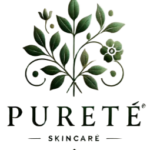Introduction
Oily and combination skin types can be challenging to manage, often prone to excess sebum, enlarged pores, and occasional breakouts. While many conventional products promise control, they often strip the skin of natural oils, triggering more oil production and irritation. Organic skincare provides a gentle, balanced approach that regulates sebum, nourishes without clogging pores, and maintains long-term skin health.

Understanding Oily and Combination Skin
Oily skin produces excess sebum, which can lead to shine, clogged pores, and acne. Combination skin typically exhibits oiliness in the T-zone (forehead, nose, chin) while remaining dry or normal on the cheeks. Maintaining moisture balance is critical, and harsh chemical treatments often worsen the problem. Organic ingredients help restore equilibrium naturally.
Key Organic Ingredients for Oily and Combination Skin
- Green Tea Extract – Controls excess sebum and reduces inflammation.
- Witch Hazel – Natural astringent that minimizes pores without overdrying.
- Aloe Vera – Hydrates and soothes irritated areas.
- Jojoba Oil – Mimics the skin’s natural sebum, helping regulate oil production.
- Niacinamide (Plant-Derived) – Balances oil, improves skin texture, and reduces blemishes.
- Tea Tree Oil – Naturally antibacterial, effective for occasional breakouts.
These ingredients are carefully chosen for their ability to provide moisturization and protection while controlling oil levels.
Building an Organic Routine for Oily/Combination Skin
Morning Routine:
- Cleanser – Use a gentle foaming organic cleanser to remove excess oil.
- Toner – Witch hazel or rosewater toner to refresh and tighten pores.
- Light Serum or Moisturizer – Hydrating gel with aloe vera or jojoba oil.
- Sunscreen – Mineral-based SPF to protect without adding extra shine.
Evening Routine:
- Cleanse Thoroughly – Double cleanse with oil-based organic cleanser followed by gentle foaming cleanser.
- Spot Treatment – Tea tree oil or salicylic acid derived from natural sources.
- Night Moisturizer – Lightweight, non-comedogenic cream with green tea or aloe extract.
Consistency is key. Avoid over-cleansing, which can trigger excess oil production, and focus on gentle, natural solutions.
Lifestyle Tips for Balanced Skin
- Maintain a healthy diet rich in antioxidants and omega-3 fatty acids.
- Drink plenty of water to regulate oil production.
- Avoid touching the face frequently to prevent breakouts.
- Clean pillowcases and phone screens regularly to reduce bacteria exposure.
Conclusion
Managing oily and combination skin doesn’t require harsh chemicals or complicated routines. Organic skincare provides natural, gentle solutions that regulate oil, maintain hydration, and reduce inflammation. With the right ingredients and consistent care, oily and combination skin can achieve balance, clarity, and a radiant appearance.





